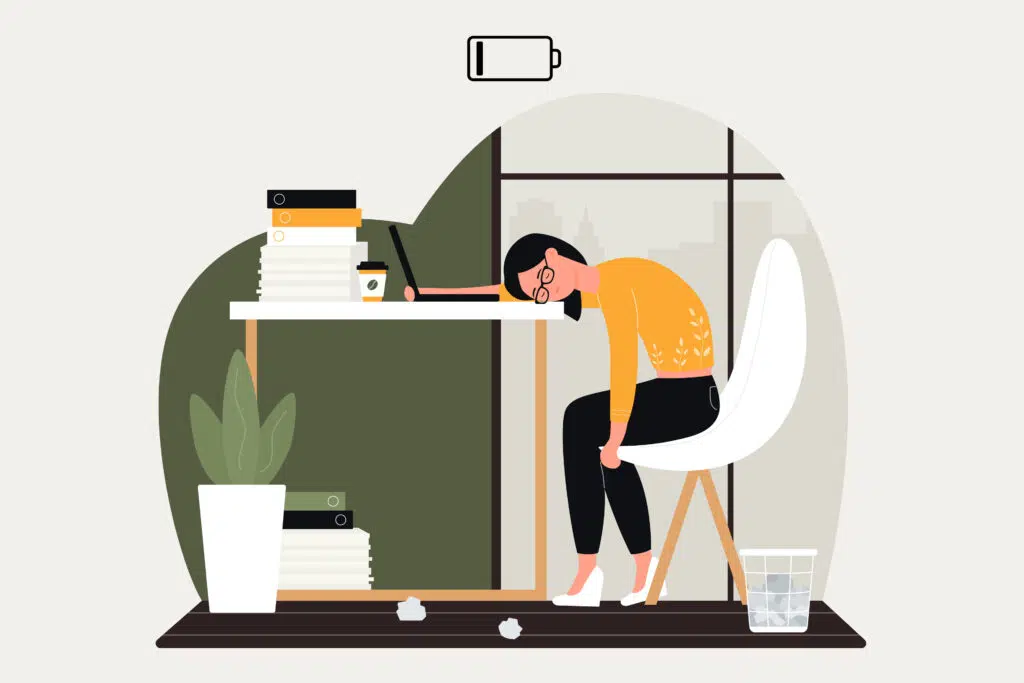The Healing Power of Journaling: Unlocking Emotional Expression

Journaling is a type of expressive writing that can help you identify and release difficult feelings, process emotions, and even learn a new coping method for the future. Let’s talk about how therapeutic writing can help mental health and how to add journaling to your self-care toolkit.
How Does Journaling Help With Mental Health?
From our own research, we know that more people are trying to prioritize self-care practices and say no when they mean it. Young people, especially, are turning to self-care care methods to help manage their mental health and emotions.
Self-care can help support and maintain mental health. It’s anything you do on purpose with your well-being in mind. This can include regular exercise, mindfulness meditation, staying connected with friends and family, and journaling.
Journaling is a practice where you regularly record your thoughts, feelings, and experiences. There is no set way to journal. You can put pen to paper, use an app, or type it on your computer. The idea is that you create a safe space to reflect and process.
Therapists often use journaling exercises in therapy to help with self exploration and personal growth. Common types of journaling include:
- Expressive writing: This technique focuses on writing about a specific emotional experience honestly and openly. Don’t worry about grammar, spelling, or being perfect; just write how you feel.
- Gratitude journaling: This one focuses on the positive parts of your life that you’re grateful for, which can be helpful in shifting to a more positive mindset.
- Reflective journaling: This technique encourages individuals to reflect on feelings, thoughts, and experiences, which can help them to identify patterns in behavior.
- Goal setting and tracking: Whatever technique you choose, your journal can be a tool for setting goals, tracking success, seeing how far you’ve come, and identifying areas in your life you would like to improve.
What Are The Benefits Of Journaling For Mental Health?
Here’s how journaling can help with mental well-being.
Emotional Release And Processing
Sometimes, getting your thoughts out of your head and down on paper can help clear your mind. It can then make it easier to label how you think and feel and work through your concerns. Expressive writing can be a useful tool for emotional release and processing for a few reasons:
- Externalize your emotions: Taking your thoughts and feelings out of your head onto paper can be a cathartic experience. It can encourage you to release pent-up emotions in a non-judgmental way.
- Gain clarity and perspective: Writing down your feelings can force you to examine them more slowly. By thinking about emotional triggers and underlying thoughts that contribute to how you feel, you may gain a different perspective and more clarity, encouraging a better understanding of your emotions.
Self-Reflection And Identifying Patterns
Journaling can be a valuable and creative tool for processing difficult life events and increasing self-awareness. By creating a safe space to jot down how you feel and your experiences, you can gain a deeper understanding.
Over time, journaling can help you track emotions and behaviors. Maybe certain situations or people trigger negative emotions or unhealthy behaviors. By identifying patterns, you can start to develop healthy coping mechanisms and even break free from negative cycles.
Manage Stress And Anxiety
Journaling may help individuals to manage stress and anxiety. One study found individuals who adhered to positive affect journaling experienced an increase in well-being and a decrease in mental distress. After one month, journaling was associated with fewer depressive symptoms and anxiety. Positive affect journaling is a type of journaling technique where individuals are encouraged to write about the positive aspects of their life, such as:
- What challenges have you overcome?
- What do you love about yourself?
- Who in your life are you thankful for?
Build Confidence And Self-Esteem
There are several ways that journaling can help to build confidence and self-esteem:
- Improve self-awareness
- Gain a better understanding of your strengths and weaknesses
- Challenge negative thoughts
- Help identify accomplishments in your life
Journaling can help you build a more positive self-image, contributing to self-esteem and confidence. By writing down what you’re proud of and reflecting on your strengths and values, you can reinforce your self-worth.
Research suggests that individuals who accept their mental experiences rather than judge them may attain better psychological well-being. That acceptance is linked with greater psychological health. Journaling encourages individuals to reflect, process, and accept feelings and experiences and move away from negative, self-critical thinking.
Tips and Prompts to Enhance Your Emotional Expression Through Therapeutic Writing
There is no right or wrong way to journal, so be patient while you build a comfortable practice. Journaling can bring up emotions as you explore and understand more about yourself, so try to acknowledge how you feel without judgment.
How Do I Start Journaling For Mental Health?
There are a few ways you can start journaling:
- Physical vs. Digital: Choose between a pen and paper, typing on your laptop, or trying a journaling app like Day One or Five Minute Journal.
- Establish a Routine: Start with a short and achievable routine, like 5 or 10 minutes daily, and gradually increase over time. Block out time in your week and schedule it in your diary.
- Try Freewriting: One way to start journaling is to set a timer of 5 or 10 minutes and write consistently until the timer is up to help loosen up your thoughts.
- Use Prompts: Use prompts to help guide your writing, especially if you’re stuck or unsure where to start. Some apps and journals can include prompts for specific goals and moods.
- Be Consistent: The more you journal, the more it feels part of your routine and the more impactful it can become. Embrace it as a time for self-exploration.
Here are some journaling writing prompts to get started:
- List 5 things you’re thankful for
- Describe a recent success and how it made you feel
- Describe how your body feels today
- List 2 things you achieved today, no matter how small
- Write down 1 stressful thought and imagine letting it go and feeling lighter
- Reflect on a mistake you made and what you can learn from it to grow
- What do you really love about yourself?
How Journaling Can Empower Your Mental Well-Being
While journaling is a powerful tool for mental well-being, it’s not a solution for everything and may not help with the following:
- Severe mental health conditions: Journaling may be helpful alongside therapy but can’t replace a mental health professional for conditions such as depression and PTSD.
- Acute crises: If you’re in an immediate crisis or feeling overwhelmed, it’s essential to contact your healthcare provider or consider calling a crisis hotline.
- Addiction and substance use: Again, journaling can be a useful tool for self-reflection, but it can’t replace addiction treatment from a health professional.
- Deeply traumatic experiences: Journaling about very traumatic experiences is likely to feel extremely hard. If you’re experiencing past trauma, you may benefit from speaking with a trauma therapist who can help guide you through the process safely.
Journaling is a powerful tool that can become part of your self-care routine to support your mental well-being. But if you’re struggling with your mental health, book an appointment with one of our caring therapists, who can help you work through difficult emotions in a safe space.

How to Overcome Procrastination and Anxiety
Procrastination is a very typical human experience. At some point or another, we’re all guilty of putting off that task we know is important. Maybe it’s household chores, filling your taxes, paying bills, or some other mind-numbingly boring task.

How to Build a Consistent Routine That Combats Depression
Depression can feel like a pit you can’t escape from, but know that depression is treatable with the right help. A basic daily ritual encourages healthy habits like a regular sleep schedule, healthy food choices, and exercise that support mental health.

How to Manage Stressful Life Transitions and Events
From getting into college or having a baby to splitting from a spouse or experiencing the death of a loved one, life can surprise you with big wins and tear you down with loss. Life is filled with transitions, some happy, others stressful and difficult.

How Long Does it Take to Recover from Burnout?
If you’ve reached burnout, it describes a state of complete emotional, physical, and mental exhaustion. Between heavy workloads, toxic work environments, economic uncertainty, and a poor work-life balance, burnout is a very real problem that can affect all aspects of your health.




